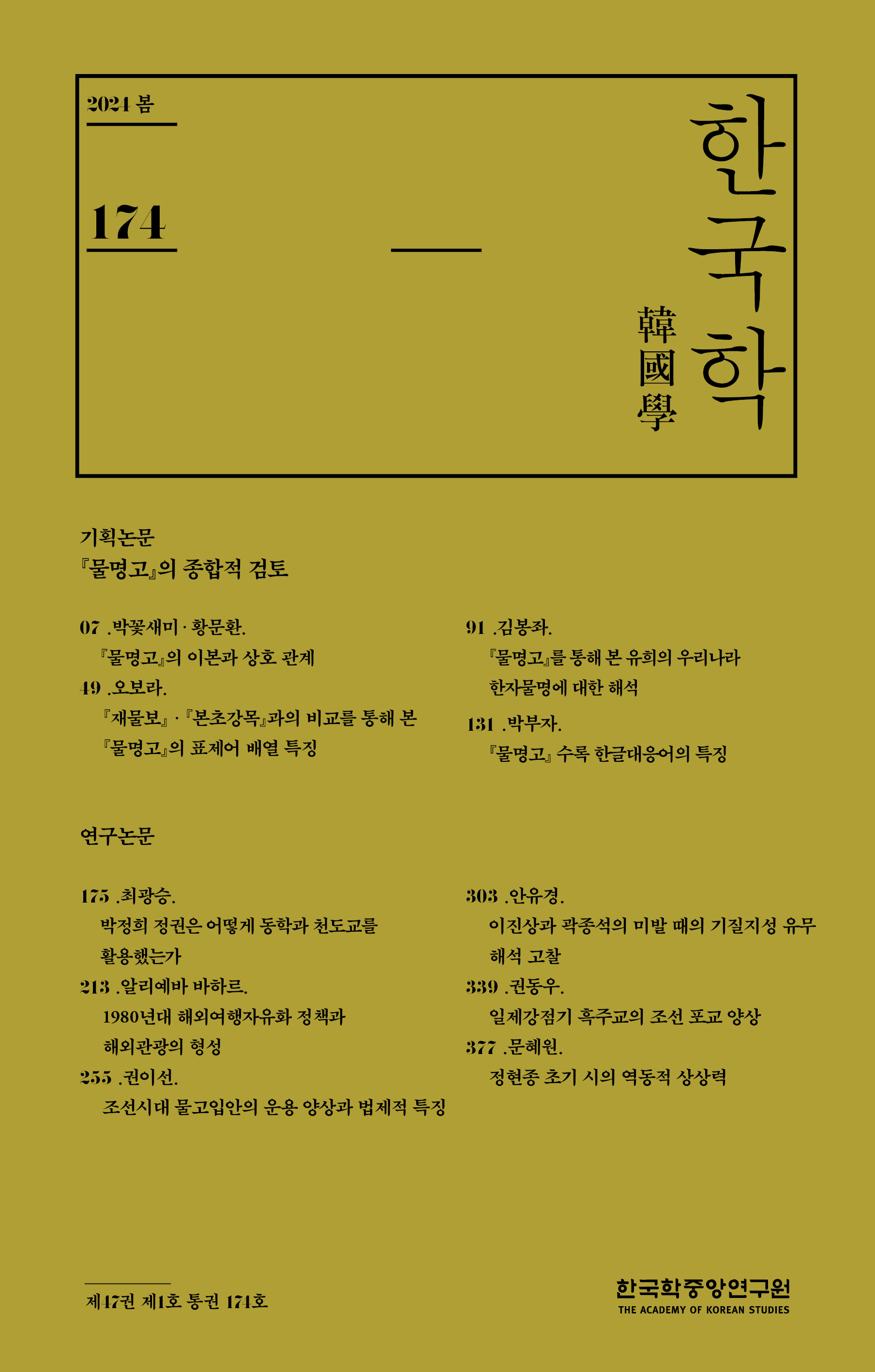
- P-ISSN 2671-8197
- E-ISSN 2733-936X
.jpg)
This thesis aims to make a close examination of the correlation of Korea’s financial crisis with the government‐Chaebol relations in the transition to the post‐authoritarian economic regime since the early 1980s. Recent studies argue that it requires both cooperative government‐Chaebol relations based on a willingness for reciprocal consent, and self‐coordinating and ordering capacity inside the Chaebol circle in the transition to the post‐authoritarian economic regime. In this context, it concludes that Korea’s financial crisis resulted from the lack of these conditions. The background behind these circumstances stems from the weakening government leadership, as a result of complicated interactions among domestic and external factors out of government control, as seen in the policy process of industrial specialization. The Chaebol circle has changed its stance to resistance rather than cooperation toward the government leadership. The government had no choices but to leave them alone, due to the limit of its capacity. Moreover, the lack of self‐coordinating and ordering capacity has prevailed inside the Chaebol circle. This situation brought about the widening balance‐sheet deficit, and aggravated country‐risk in the international financial market. International investors began to have doubts about the soundness of Korea’s economy, and made a final decision to escape from the Korean and East Asian markets as the Thailand’s financial crisis was sure to emerge. This reveals that several studies focusing on the weakness of financial institutions, and the shock from global capitalism, are not enough to explain the causes of financial crisis in Korea. These should be counted only as catalysts rather than as the primary causes.
공정거래위원회, 공정거래백서 . 서울: 공정거래위원회, 1995.
김용환, 임자, 자네가 사령관 아닌가 . 서울: 매일경제신문사, 2002.
대한민국정부, 제5차 경제사회발전 5개년 계획 1982-1986 . 1981.
대한민국정부, 제6차 경제사회발전 5개년 계획 1987-1991 . 1986.
박정희, 민족의 저력 . 서울: 광명출판사, 1971.
비상경제대책위원회, 비상경제대책위원회 활동결과 보고서 , 1998.2.2.
스루마끼 야스오(鶴蒔靖夫), 대만 대 한국: 제2의 기적은 일어날 것인가 . 서울:해돋이, 1992.
월간조선편집부, 「노태우, 역사를 위한 육성 회고 ③」. 월간조선 , 1999년 7월.
이만희, 국제경쟁력정책론 . 서울: 대광문화사, 1996.
정갑영, 「개방화의 정부규제」. 구석모 편, 경제민주화와 정부규제 , 서울: 한국경제연구원, 1991.
정주영, 시련은 있어도 실패는 없다 . 서울: 현대문학신문사, 1991.
한국경제개발연구원, 한국경제의 반세기: 정책자료집 . 1995.
한국은행, 기업경영분석 . 1992.
한국은행, 기업경영분석 . 1994.
한국재정40년사 편찬위원회, 한국재정40년사 제1권. 서울: 한국개발연구원, 1991.
후랜시스 후쿠야마, 이상훈 역, 역사의 종말 . 서울: 한마음사, 1992.
《매일경제신문》, 1962년 6월 8일자; 1980년 8월 20일자; 1980년 11월 26일자; 1984년8월 30일자; 1994년 7월 12일자; 1994년 8월 10일자; 1994년 8월 16일자; 1995년4월 1일자; 1995년 5월 31일자; 1995년 7월 1일자.
《중앙일보》, 1991년 10월 11일자.
《한국경제신문》, 1993년 10월 28일자.
今井譲, 「グローバリゼーションとアジア通貨金融危機について」. 今井譲 編, アジア通貨危機と金融市場 . 東京: お茶の水書房, 2001, 3-19쪽.
稲田十一, 「アジア経済危機の政治的側面」. 下村恭民ㆍ稲田十一共 編. アジア金融危機の政治経済学 , 東京: 日本国際問題研究所, 2001, 17-40쪽.
太田辰幸, アジア経済発展の軌跡 . 東京: 文真堂, 2005.
久保田哲夫, 「アジア通貨危機とIMF改革」. 今井譲 編, アジアの通貨危機と金融市場 .東京: お茶の水書房, 2003, 21-67쪽.
金恩喜 他, 韓国型資本主義の解明 . 九州: 九州大学出版会, 2001.
下村恭民, 「回想の東アジア金融危機」. 下村恭民ㆍ稲田十一 共編, アジア金融危機の政治経済学 , 東京: 日本国際問題研究所, 2001, 3-16쪽.
下村恭民, 「東アジア金融危機の政治社会的影響」. 下村恭民ㆍ稲田十一 共編, アジア金融危機の政治経済学 , 東京: 日本国際問題研究所, 2001, 71-90쪽.
三輪芳朗, 政府の能力 . 東京: 有斐閣, 1998.
橘川武郞, 「日本の競争優位と中間組織」. 持田信樹 他, 市場と国家 , 東京: 木鐸社, 1992.
樋渡展洋, 戦後日本の市場と政治 . 東京: 東京大学出版会, 1991.
吉冨勝, 東アジア経済の真実: 奇跡, 危機, 制度の変化 . 東京: 東洋経新報社, 2003.
Akira, Suehiro. Catch-up Industrialization: The Trajectory and Prospects of East Asian Economies. trans. By Tom Gill, Honolulu: University of Hawaii Press,2008.
Balassa, Bela, “Indicative Planning in Developing Countries.” Journal of Comparative Economics, vol.14, no.4, December 1990.
Beeson, Mark, Regionalism and Globalization in East Asia: Politics, Security and Economic Development. New York: Palgrave Macmillan, 2007.
Choi, Jungug, Governments and Market in East Asia: The Politics of economic crisis. London: Routledge, 2006.
Grabowski, Richard, “The Successful Developmental State.” World Development, vol.22, no.3, 1994.
Greenspan, Alan, “Analysis of the Causes of the Crisis.” http://www.bog.frb.us/boarddocs/speeches/19980227.htm(접속일: 1998년 4월 15일).
Hagard, Stephan and Cheng, Tun-jen, “State and Foreign Capital in the East Asian NICs.”, in Deyo, Frederic C.(ed.), The Political Economy of the New Asian Industrialization, Ithaca: Cornell University Press, 1987.
Haggard, Stephan and Moon, Chung-In, “Institutions and Economic Policy: Theory and a Korean Case Study.” World Politics, vol.42, no.2, January 1990.
Johnson, Chalmers, “What is the Best System of Nation Economy Management for Korea.” in Cho, Lee-Jay and Kim, Yoon Hyung(eds.), Korea’s Political Economy, Boulder: Westview Press, 1994, pp.64-83.
Johnson, Chalmers. “Political institutions and economic performance: the government- business relationshaip in Japan, South Korea, and Taiwan.” in Deyo, Frederic C.(eds.), The Political Economy of the New Asian Industrialization, Ithaca: Cornell University Press, 1987.
Kim, Byung-Kook, “The Politics of Chaebol Reform, 1980-1997,” in Haggard, Stephan; Lim, Wonhyuk; Kim, Euysung(eds.) Economic Crisis and Corporate Restructuring in Korea: Reforming the Chaebol, New York: Cambridge University Press, 2003, pp.53-70.
Leftwich, Adrian, “Governance, the State and the Politics of Development.” Development and Change, vol.25, no.2, April 1994.
Mo, Jongrin and Moon, Chung-in. “Business-Government Relations under Kim Dae-Jung.” in Haggard, Stephan; Lim, Wonhyuk; Kim, Euysung(eds.), Economic Crisis and Corporate Restructuring in Korea: Reforming the Chaebol, New York: Cambridge University Press, 2003, pp.127-147.
Park, Kyung Suh, “Bank-led Corporate Restructuring.” in Haggard, Stephan; Lim, Wonhyuk; Kim, Euysung(eds.), Economic Crisis and Corporate Restructuring in Korea: Reforming the Chaebol, New York: Cambridge University Press, 2003, pp.181-202.
Park, Yung Chul, Economic Liberalization and Integration in East Asia: A post-crisis paradigm. Oxford: Oxford University Press, 2006.
Rueshemeyer, Dietrich and Evans, Peter B., “The State and Economic Transformation.” in Rueshemeyer, Dietrich, Evans, Peter B., Skocpol, Theda(eds.), Bringing the State Back In, Cambridge: Cambridge University Press, 1984.
Shin, Jang-sup and Chang Ha-joon, Restructuring Korea Inc. London: Routledge Curzon, 2003.
Wade, Robert, Governing the Market: Theory and the Role of Government in East Asian Industrializatio. Princeton, New-Jersey: Princeton University Press, 1990.
Weiss, Linda, “Government-Business Relations in East Asia.” Asian Perspective, vol.18, no.2, Fall/Winter 1994.